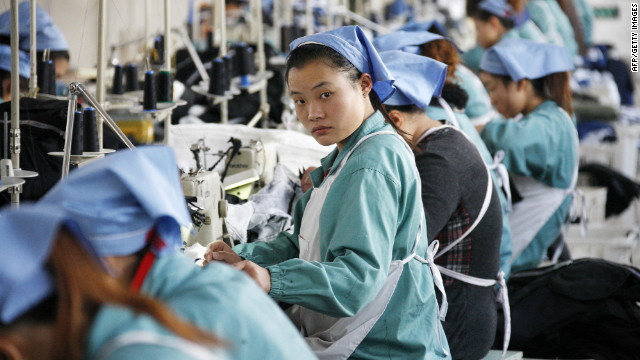 EPA Clothiers are contesting a recent newspaper report that suggests they are mislabeling "organic cotton" clothing.
A battle is brewing over identifying clothing as being made of organic cotton when it contains strains of genetically modified cotton seed. Things got heated last week when the German edition of The Financial Times newspaper reported that clothing labeled as organic cotton and sold by major retailers contained genetically modified cotton from India. The expos caused a stir within the industry, and several companies and organizations mentioned in the article are now coming forward and questioning the validity of the newspaper's report. The Control Union, a cotton certification group that works with the Swedish clothing company H&M one of the stores identified as selling mislabeled apparel-issued a statement arguing that the data was skewed. "It was mentioned that 30 percent of the organic cotton sold in Germany contains BT-seed cotton," the statement said, referring to a common strain of cotton genetically modified to resist insect damage. "For us it is unclear which data was used to come to this conclusion, and how the link with India was made," the Control Union said. H&M also issued a statement noting that it was aware that an Indian regulatory authority had criticized the Control Union last year for insufficient checks of farmers' control systems for seeds and sowing. As a consequence of the criticism, the Control Union conducted unannounced audits of all organic cotton farms that they certify in India, the statement read. None of the farms were found to use genetically modified seeds, according to the retailer, and all farms took the appropriate steps to ensure that genetically modified seeds were not used.
The Control Union has since further strengthened their routines and continue to be accredited by Indian regulators, the clothier said. Genetically modified cotton is used in India and the United States, and there is always a chance that it will become mixed with organic stocks, said LaRhea Pepper, director of Organic Exchange, a nonprofit dedicated to promoting organic fibers. (Both H&M and the Control Union are members of Organic Exchange.) Such intermingling could happen at cotton gins or at the delinting companies, Ms. Pepper said. Those are two potential places where there may be contamination if the plants are not cleaning out the machinery well. She added the Organic Exchange is trying to improve the integrity of the organic cotton trade. We've been meeting with key stakeholders in India, she said. India is the world's second largest producer of cotton, after China. The full story remains to be unraveled, but this is the second time in the new year that H&M has been caught in an awkward position. Earlier this month, The New York Times reported that the H&M store on 34th Street in Manhattan was discarding bags of unsold clothes-all slashed with a razor blade to make sure they would never be marketed elsewhere.
|
|
Questioning the Purity of Organic Cotton
Updated: 2010-2-1 Source: greeninc.blogs.nytimes

Recommended News
Photo Gallery
Most Popular



